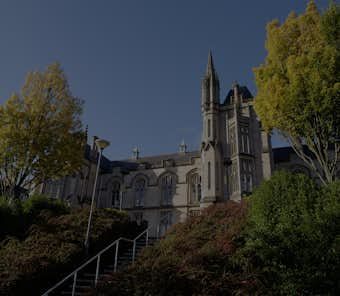
Study social policy abroad
Find programs that match your eligibility and aspirations then apply with reduced application fees, a free assessment and access to a dedicated advisor.
Find your perfect social policy programs abroad
Find social policy programs you love that match your needs & aspirations, where you stand a high chance of acceptance.
-

PhD programs in
social policyNo programs listed
Social Policy degrees abroad
Social policy is the study of social issues and government actions taken to manage them. It’s a broad field that includes elements of sociology, ethics, philosophy, psychology and economics.
As well as learning about the social inequalities that have existed throughout history, you’ll consider the contemporary challenges faced by communities today. You’ll use key concepts and theories to explore the causes and consequences of problems like poverty, unemployment, crime, homelessness and education. You’ll then evaluate how effective government policies have been at tackling such injustices.
By earning your degree abroad, you’ll see how social structures and government systems operate around the world. You’ll observe how social difficulties vary between countries and cultures, giving you a valuable international perspective.

Why use Studee?
-
Find your ideal program
Filter 10,000s of programs down to a shortlist perfect for you, where you have a strong chance of getting admitted
-
Apply online via Studee
Complete our application form and enjoy reduced application fees and access to unique Studee scholarships for many universities
-
We assess within 48hrs
We complete an 85-point assessment within 2 business days, help you with improvements then submit to your university
-
University offer in 2-4 weeks
We chase the university for your admission decision and keep you updated. We all celebrate your admission!
All our services are 100% free as we're funded by universities. You pay deposits and tuition fees directly to the university.

Social Policy program structure
Bachelor’s degrees in social policy are normally studied over three years, but some courses will integrate an additional 12-month placement. Although BA and BSc programs cover similar ground, BSc courses will focus more on statistical techniques and data analysis.
Social policy can be combined with another subject and studied as a joint honors course. This is a great way of tailoring your education to reflect your interests and ambitions. Common pairings include politics, economics, sociology and international relations.
Most US universities follow the liberal arts model of education, meaning undergraduate courses last four years. You’ll take general education classes for the first half of your program, before declaring a major in social policy at the end of your second year.
Once you’ve finished your bachelor’s degree, you might decide to enroll in a postgraduate program. Master’s degrees can be studied over one or two years, whereas research-based PhDs take several additional years.
Your timetable will mainly be made up of lectures, seminars, tutorials and discussion-based workshops. Assessment methods will depend on the modules you take, but you’ll probably complete exams, essays and presentations.
The content of your program will largely depend on where you choose to study and the social issues present in that location. However, most courses will introduce you to the following fundamentals:
- Introduction to social policy
- Social policy and control
- Health, care and wellbeing
- Policy analysis
- Poverty, class and inequality
- Education, policy and social justice
- Crime and society
- Social research
Best countries to study social policy
Social Policy study abroad programs
Social policy undergraduate programs
Bachelor's in social policy
-
Community Advocacy and Social Policy (West Valley Campus) - BA Arizona State University (in partnership with Kaplan International), USA
- Program type
- Bachelor's
- Duration
- 4 years
- Annual tuition fee
-
32,760 USD
Fees are displayed in the university's local currency
- Start date
- January, August
-
Sociology with Social Policy - BSc (Hons) London South Bank University, UK
- Program type
- Bachelor's
- Duration
- 3 years
- Annual tuition fee
-
15,900 GBP
Fees are displayed in the university's local currency
- Start date
- September
-

Social Policy - BA Massey University, New Zealand
- Program type
- Bachelor's
- Duration
- 3 years
- Annual tuition fee
-
27,330 NZD
Fees are displayed in the university's local currency
- Start date
- November, February, July
-
Social Policy (Belfast Campus) - BSc (Hons) Ulster University, UK
- Program type
- Bachelor's
- Duration
- 4 years
- Annual tuition fee
-
15,840 GBP
Fees are displayed in the university's local currency
- Start date
- September
-

Sociology and Social Policy - BSc (Hons) Cardiff Metropolitan University, UK
- Program type
- Bachelor's
- Duration
- 3 years
- Annual tuition fee
-
15,000 GBP
Fees are displayed in the university's local currency
- Start date
- September
Social policy graduate programs
Master's in social policy
-

Social Policy - MA University of the South Pacific, Fiji
- Program type
- Master's
- Duration
- 1 year
- Annual tuition fee
-
10,070 FJD
Fees are displayed in the university's local currency
- Start date
- July, February
-

Social Policy - MRes Cardiff Metropolitan University, UK
- Program type
- Master's
- Duration
- 1 year
- Annual tuition fee
-
16,000 GBP
Fees are displayed in the university's local currency
- Start date
- September
-
Social Science: Rights and Social Policy - MSocSc Maynooth University, Ireland
- Program type
- Master's
- Duration
- 1 year
- Annual tuition fee
-
14,000 EUR
Fees are displayed in the university's local currency
- Start date
- September
-
Public Policy: Social Policy - MA American University, USA
- Program type
- Master's
- Duration
- 2 years
- Annual tuition fee
-
34,596 USD
Fees are displayed in the university's local currency
- Start date
- January, September
-

Social Policy - MA Massey University, New Zealand
- Program type
- Master's
- Duration
- 18 months
- Annual tuition fee
-
31,010 NZD
Fees are displayed in the university's local currency
- Start date
- November, February, July
Future social policy careers
As a social policy graduate, you’ll be ready to make a real difference to people’s lives through your daily work.
Your problem solving, critical thinking and analytical skills will be in high demand across a range of sectors, including healthcare, social services, government, education, and charity. Some of the roles you could pursue include:
- Policy advisor
- Civil service administrator
- Social worker
- Charity officer
- Housing manager
- Local government officer
- Politician
- International aid worker
If you’re unsure of what to do after graduation, contact your university’s careers service. They’ll help you figure out your interests, land some work experience, and sharpen your resume.
















